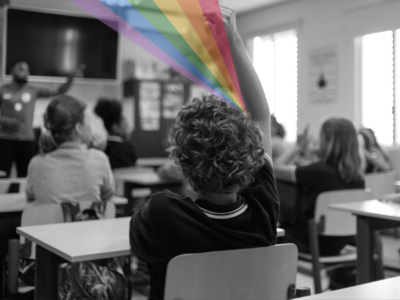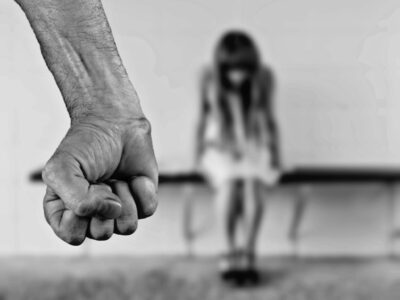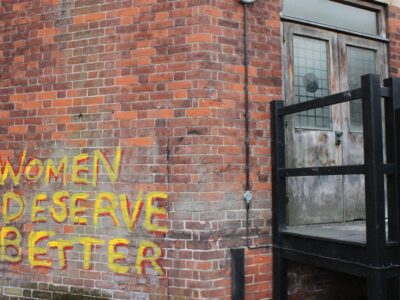
Image via Ameya Nagarajan
Women, trans people, and those with non-conforming gender identities have faced a barrage of attacks this year as conservative institutions try to control and police their bodies. This has manifested in numerous attacks on bodily autonomy. For instance, sexual violence has become an all-too-common tool in Russia’s invasion of Ukraine, leaving thousands of women as collateral in Putin’s campaign; Argentina banned the use of gender-neutral language in schools, leaving trans and non-binary students with little refuge; and, perhaps the most high-profile instance, the United States Supreme Court overturned Roe v. Wade, reducing abortion access in the US and paving the way for conservative governments to restrict access around the globe.
These cases and others like them have signaled a clear conflict. In many patriarchal communities, women’s bodies have historically been regarded as property — something to be owned and controlled. As people from historically oppressed genders have tried to throw off their yokes and take control of their bodily and sexual identities, many communities have witnessed backlash as the people and institutions that have long regulated them fight to regain control.
This fight can take many forms. In some cases, it is through literal policing, as abortion or sex work is criminalized, some women and trans people are arrested and persecuted for the choices they make about their bodies. In other cases, this patriarchal control might appear as physical restrictions, as women are banned from physically entering some spaces or accessing services without a man present, as is the case in Afghanistan under the new Taliban regime. Finally, there are laws and policies that dictate what women can and cannot do with their own bodies.
Now, as mainstream media outlets focus on the US’s power struggle over Roe v. Wade, Global Voices wants to shine a light on how these same themes are playing out in global south nations around the world — nations that are facing similar struggles with much less attention or global support.
Young girls in Nigeria and other sub-Saharan African nations are being subjected to female genital mutilation (FGM), oftentimes against their will. Brazilian courts are working to curb abortion access even in cases of rape, incest, or medical risk — despite laws that guarantee women’s right to abortion in these cases. Abortion advocates in Latin America are gearing up for fights with anti-abortion groups that have been inspired by the US court ruling.
These conflicts come at an already precarious time for women and LGBTQ+ people. The global COVID-19 pandemic stifled women’s healthcare, abortion and contraceptive access, and sexual education. LGBTQ+ people also faced an inordinate amount of violence and oppression during this period as lockdowns, and economic strain left many without identify-affirming support.
This series aims to highlight the battle for bodily autonomy around the world, focusing on the way women, trans, and gender non-conforming individuals are having their rights encroached upon, as well as how some people are fighting back against these injustices.
Read Global Voices’ coverage on this topic below.
Stories about Bodily autonomy around the world
Brazilian politicians funded an online anti-abortion campaign ahead of Supreme Court ruling vote
In adverts pushed on Instagram and Facebook, politicians have taken positions against abortion and criticized the Supreme Court for scheduling a ruling on it
#VoicesOfChange: Lorena Duarte fights for the rights of trans women in Colombia
"Today, more and more trans women are finishing their studies and becoming professionals," explains activist Lorena Duarte.
Did 2022 see the Caribbean become more ‘gay-friendly'?
While Barbados is the latest regional territory to deem its "buggery" laws unconstitutional, there has been some confusion — and even legal reversals — over LGBTQ+ rights in other Caribbean nations.
Indonesia's new penal code revisions don't just threaten sexual freedoms
Indonesia's recent penal code revisions threaten journalists, free speech, bodily autonomy and more — severely undermining democracy in the region.
LGBTQ+ stigmatization in the Czech Republic: A worrying trend among local politicians
Some conservative Czech politicians and elected officials are instrumentalizing the LGBTQ+ community, accusing it of imposing its "agenda," and are trying to take away their rights.
Can music and feminism help heal border conflicts in Central Asia?
Tajik-Russian pop singer Manizha just released a new song about a young rural Kyrgyz woman learning to play ice hockey professionally, a move that empowers her in her community.
Lawmakers try to bar gender and sexuality education in Brazil, says Human Rights Watch
Of the proposals to ban or even criminalize the key concepts of "gender" and "sexual orientation" in all areas of education, 47 passed and at least 20 were still in effect as of May 2022.
Carving a path for LGBTQ+ people through shame, homophobic violence, and bans
People lean towards embracing dignity and pride for what they are. Being “Kazakh” and being “gay” seemed to be mutually exclusive, but we become aware of our rights, our self-worth.
#FreeOurDaughters: ending Female Genital Mutilation in Nigeria
Nigeria is in the top three countries for FGM, which causes severe bleeding, urinal infections, psychological problems and complications in pregnancy for women survivors.
Rising violence against women and girls sparks outrage in Kyrgyz society
Despite the adopted legislation on sexual violence (including violence against children), bride abduction, and domestic violence, the system for its implementation is deeply flawed — almost obsolete.
Missing, presumed dead: A sensational murder case in Jamaica highlights the plight of many vulnerable Caribbean women
The high-profile case of Jamaican social media influencer Donna-Lee Donaldson is just one of many tragic stories of femicide across the region.
As peace and prosperity unravel, Central Asia braces for a surge of forced labor and sexual slavery
Economic crises, cuts in public spending and subsequent unemployment are commonly regarded as the factors that aggravate the risks for vulnerable groups of population to fall prey to human trafficking
Why the conviction of rapists in Nigeria has remained atrociously low
Nigeria’s unconvicted rape cases are becoming unbearable for its rape survivors, who are struggling to overcome their experiences.
Two abortion controversies expose the hypocrisy of ‘pro-life’ defenders in Brazil
Two public cases raised questions about abortion access in Brazil. One in which an 11-year-old faced difficulties to access legal abortion, and another over adoption after rape.
Will Latin America follow in the wake of Roe v. Wade?
The repeal of Roe v. Wade "is a reminder that all over the world, rights can be challenged at any time and may be at risk of being rolled back in a conservative regime."
A Bosnian perspective on the US fight for reproductive rights
Bosnia and Herzegovina's recent history of forced pregnancy in the context of genocidal rape has set this Balkan nation on a track to protect the right to choose one’s own reproductive destiny.
Trans women in the sex industry in Azerbaijan: Is it a free choice or just the illusion of choice?
In countries like Azerbaijan, where trans women end up as sex workers, legalization of sex work is seen as a solution to the problem.
The overturning of Roe vs. Wade unsettles the Caribbean, most of which doesn't have progressive abortion laws
"Apart from women deeply inculcated with religious dogma, the time cannot be far off when women throughout the Caribbean will use their voting power to demand the right to choose."
Ending violence against women across the peacetime–wartime continuum
In armed conflict, women are deliberately targeted with the specific intention of harming the societies they belong to, or opportunistically harmed, outside of a campaign, with no fear of sanction.
In a post-COVID workplace, is a ‘professional’ dress code still relevant?
Adopting a gender-neutral, less restrictive, and diverse dress code style will open the doors of opportunity for employees coming from underrepresented groups such as people with disabilities and LGBTQ+ employees.
Equality for transgender Ukrainians: A long way to go, now complicated by the war
Russia's invasion has affected the life of the Ukrainian transgender community: many have lost jobs, access to safe medical care. They are also exposed to humiliating gender questioning.























